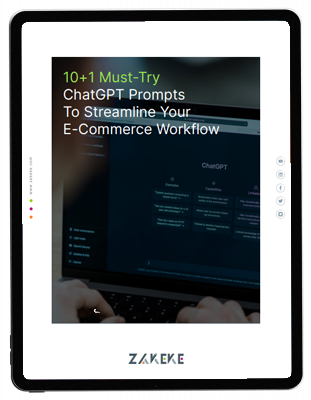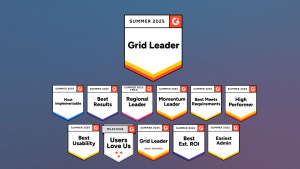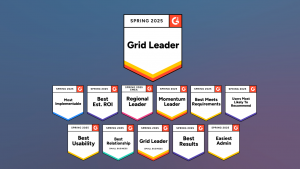Imagine walking into a vast digital marketplace, where every online store is vying for attention. Some stores are bustling with customers, while others are eerily quiet. What sets them apart? Often, it’s the power of keyword research. It’s the invisible force that pulls customers into one store and not the other, guiding their every click and purchase.
Now, if you’re thinking, “Keyword research? Sounds technical and tedious,” Ok, get it. But here’s the twist: it’s less about algorithms and more about understanding human behavior. It’s about tapping into what your customers are really searching for and meeting them right there.
And the numbers back this up. A study by Ahrefs revealed that websites that prioritize long-tail keywords can witness up to a 70% surge in traffic. That’s a game-changer!
Whether you’re launching your first e-commerce venture or seeking fresh strategies to boost an existing one, this guide promises insights that can transform your online store’s trajectory.
Ready to embark on this journey? Let’s set sail!
Understanding the Importance of Keyword Research for E-commerce
In the bustling digital marketplace, standing out is a blend of art and science. And keyword research is the compass guiding this journey, especially for e-commerce businesses.
Imagine you’re a shopper. When you type “how to fix a watch” into a search engine, you’re on a different mission than if you searched for “buy luxury watch online.” This is the essence of user intent. By understanding and targeting these specific intents with your keywords, you’re not just driving traffic, you’re attracting visitors who are more likely to convert because they found precisely what they were seeking.
But it’s not just about understanding your audience. It’s also about optimizing your budget. If you’re pouring money into paid advertising, you want to ensure you’re getting the most value out of every cent. This means bidding on the right keywords. Think about it: some keywords might bring a flood of visitors, but if they’re not converting, that’s a lot of wasted money. On the other hand, high-intent keywords might have fewer searches, but they bring in visitors who are ready to buy.
And then there’s the content. Keyword research is like a guiding star for your content strategy. Whether you’re brainstorming blog topics or crafting the perfect product description, knowing the terms your audience uses can make your content resonate more deeply. Plus, search engines love relevant content. The more you optimize your content around specific keywords, the better your chances of climbing the ranks and being seen by even more potential customers.
Lastly, keyword research is about staying agile. The digital world is always shifting. New trends emerge, old ones fade, and consumer behavior evolves. By keeping a pulse on keyword trends, you can anticipate these shifts and adapt, ensuring your e-commerce business remains at the forefront.
Why is Keyword Research so Important for E-commerce?
In the vast ocean of e-commerce, keyword research is your compass. It’s what ensures you’re sailing in the right direction, attracting the right customers, and offering them exactly what they’re seeking. Let’s delve into why it’s such a pivotal aspect of e-commerce:
- Understanding Your Audience: At the heart of every successful e-commerce venture is a deep understanding of its audience. Keyword research offers a window into your customers’ minds. It tells you what they’re searching for, their pain points, desires, and even the language they use. By aligning your content and products with these insights, you’re not just selling; you’re solving problems and fulfilling desires.
- Driving Quality Traffic: Not all traffic is created equal. A thousand random visitors might not be as valuable as a hundred targeted ones. Keyword research ensures that the traffic coming to your site is genuinely interested in what you have to offer. According to a study by Moz, websites that optimized specific keywords witnessed a 600% improvement in their conversion rates. That’s the difference between browsers and buyers!
- Staying Ahead of the Curve: The e-commerce landscape is ever evolving. New trends emerge, customer preferences shift, and competitors up their game. Regular keyword research keeps you in the loop. It alerts you to emerging trends, allowing you to adapt and innovate before others catch on.
- Optimizing Marketing Budgets: Every dollar counts in the competitive world of e-commerce. By understanding which keywords resonate with your audience, you can allocate your marketing budget more effectively. Instead of spraying and praying, you’re making data-driven decisions that yield a higher return on investment.
How to Do Keyword Research for E-Commerce
Dive Deep with Long-Tail Keywords:
- Understanding the Power of Specificity: Generic keywords like “shoes” or “watches” might attract a vast audience, but they’re not necessarily looking to buy. Long-tail keywords, on the other hand, attract a more niche audience that’s closer to making a purchase decision. For instance, “women’s red stiletto heels size 8” is a clear indication of a user’s intent to buy.
- Benefits: Apart from lower competition, these keywords often have a higher conversion rate. A study by Ahrefs revealed that pages targeting long-tail keywords bring in more than 75% of search traffic.
- How to Find Them: Use tools like Ubersuggest or AnswerThePublic. These tools provide variations and questions people ask related to your primary keyword, giving you a plethora of long-tail options.
Leverage User-Generated Content:
- Why It Matters: Customers speak a different language than marketers. They might describe a product in a way that you haven’t thought of. This raw, organic content is SEO gold.
- Where to Look: Dive into product reviews, Q&A sections on your product pages, and even discussions about your products on external forums or social media.
- Implementation: Once you’ve gathered a list of terms and phrases your customers use, incorporate them into your product descriptions, meta descriptions, and even blog content.
Spy on Your Competitors:
- The Art of Competitive Analysis: Your competitors might have done some heavy lifting in keyword research. While you shouldn’t copy them, learning from their strategies can offer valuable insights.
- Tools to Use: SEMrush, Ahrefs, and Moz allow you to see which keywords your competitors rank for. Look for gaps in their strategy that you can exploit or discover high-performing keywords that you might have overlooked.
- Beyond Keywords: These tools also provide insights into backlink strategies, content performance, and more. It’s a holistic view of what’s working for them (and what’s not).
Seasonal and Trend-Based Research:
- The Ebb and Flow of E-commerce: Consumer behavior changes with seasons, festivals, and even global events. Your keyword strategy needs to be agile enough to tap into these shifts.
- Staying Updated: Tools like Google Trends can show you the popularity of specific search queries over time. This can help you anticipate surges in demand and tailor your content accordingly.
- Implementation: Create seasonal landing pages, launch timely marketing campaigns, or write blog posts that cater to these trending searches. For instance, during back-to-school season, a blog post titled “Top 10 Essential School Supplies in 2023” can attract a significant amount of traffic.
Wrapping Up
Unlocking the nuances of e-commerce keyword research is akin to discovering a secret pathway to success in the digital realm. By pinpointing and targeting the right keywords, you’re not just attracting visitors; you’re drawing in potential customers who are genuinely interested in what you offer.
Remember, it’s not merely about quantity but the quality of traffic that truly counts. As you embark on this journey, ensure you’re equipped with the right strategies, tools, and an unwavering focus on your audience’s needs.
Happy optimizing!
Frequently Asked Questions (FAQs) About E-commerce Keyword Research
Q: Why is keyword research important for my e-commerce business?
A: Think of keyword research as the foundation of your e-commerce SEO strategy. It helps you understand what potential customers are searching for, allowing you to tailor your content, products, and ads to meet those specific needs. By targeting the right keywords, you increase your visibility on search engines, drive more relevant traffic to your site, and ultimately boost sales. It’s like having a roadmap that directs interested buyers straight to your virtual doorstep.
Q: What tools can I use for e-commerce keyword research?
A: There’s a plethora of tools out there, each with its unique strengths. Some of the top contenders include Google Keyword Planner for insights directly from Google, SEMrush and Ahrefs for comprehensive SEO analysis, Ubersuggest for user-friendly keyword suggestions, and AnswerThePublic for understanding user queries. The best tool often depends on your specific needs and budget.
Q: How often should I conduct keyword research for my e-commerce business?
A: The digital world is dynamic, with trends, market demands, and user behaviors constantly evolving. While there’s no hard and fast rule, I recommend revisiting your keyword research at least every six months. This ensures you stay updated with current search trends and can adapt your strategy accordingly.
Q: What is keyword difficulty and why is it important?
A: Keyword difficulty refers to how challenging it might be to rank for a particular keyword on search engines. It considers factors like competition, search volume, and current rankings. Understanding keyword difficulty helps you gauge whether it’s worth investing time and resources into targeting a specific term or if your efforts might be better spent elsewhere.
Q: How can I incorporate keywords into my e-commerce website?
A: Incorporating keywords goes beyond just stuffing them into your content. Place them strategically in product titles, descriptions, meta descriptions, and URLs. Create valuable blog posts around topics related to your keywords. Ensure that your site’s technical SEO, like alt tags and schema markup, also aligns with your keyword strategy. Remember, it’s about creating a seamless and relevant experience for your users.

Aryan Shukla
E-commerce Growth Marketing Expert – The Frame Agency
Aryan, an E-commerce Growth Marketing expert and entrepreneur, has marked his success with leading brands and his ventures, The Frame Agency and MyStory Public Relations. His expertise lies in Email Marketing, SEO, Omnichannel marketing, and AI automation, which empowers businesses in the e-commerce sector.















